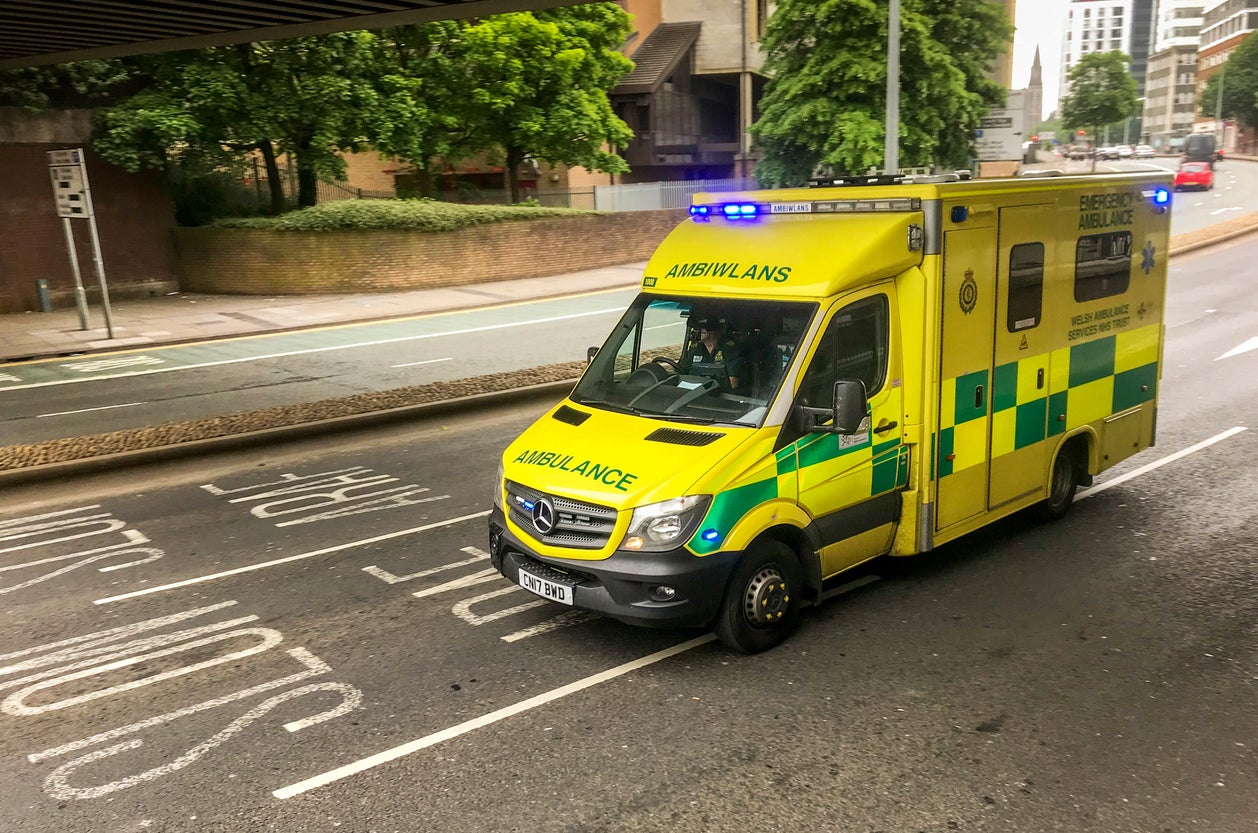NHS to roll out electric ambulances in push to lower carbon footprint
NHS has set up a Greener NHS team to look at ways to lower the health service’s carbon footprint

The NHS is set to roll out a fleet of electric ambulances as part of its commitment to combating climate change.
A pilot for the electric ambulances will be launched next month across the North West, East of England, Yorkshire, South West and London. It was not immediately clear how many ambulances would be rolled out in these areas.
Paramedics have raised concerns that the lengthy amount of time needed to recharge batteries on the vehicles could impact already-long patient waiting times for the service.
Electric ambulances have already been trialled in the West Midlands and an evaluation of the scheme showed that they travelled an average of 70 miles between charging and that the range was a “significant limiting factor”, according to a report.
The report said: “Range and re-charge time is a significant limiting factor, particularly with the DCA, our vehicle operates out of Erdington, the range of 100 miles is more than sufficient to cover a shift – if we were to move this vehicle to most of our other hubs (outside the conurbation) it would not be, rural areas in particular are covering twice this mileage and more in a shift as an example.”
The NHS West Midlands Ambulance service launched its first electric ambulance in 2020 and has since added two electric response cars and four further support vehicles.
Regular ambulances can cover 800 miles per day and the time needed to fill up is just a few minutes.
The NHS has set up a Greener NHS team to look at ways to lower the health service’s carbon footprint, leaked documents seen by The Telegraph reveal.
A whistleblower told the newspaper: “Every part of the NHS is under-resourced and waiting lists remain historically high, but commitment to green zealotry remains unchanged. The amount of resources dedicated to the green agenda is astounding, and the fact that it is now impacting clinical decision-making is, I believe, grossly unethical.”
As part of the NHS’s push to make things greener, it will also reportedly ask every supplier to draw up a carbon reduction plan.
Other plans include an “evergreen assessment” for medicines, “climate-friendly” pain relief for mothers in labour and GP’s visiting patients using e-bikes rather than cars.
Richard Webber, a paramedic and spokesman for the College of Paramedics, told the newspaper that electric ambulances could be useful in urban areas, but voiced concerns about them being used in more rural parts of the country.
He said: “I think they really need to produce the evidence that this is safe before this is rolled out beyond urban areas. I would be very wary of that. If I have got a very sick patient, someone who has had a heart attack and I am trying to get them to hospital I don’t want to be worrying about the battery.”
An NHS spokesperson said: “NHS services must always put patients first when procuring products and it is also right we seek green alternatives, but only when they save the taxpayer money.
“The new electric ambulances are benefiting thousands of patients, hospitals report they are working efficiently, and they could help deliver annual operational savings of £59 million.”
The Independent has contacted NHS England for further comment.
Subscribe to Independent Premium to bookmark this article
Want to bookmark your favourite articles and stories to read or reference later? Start your Independent Premium subscription today.

Join our commenting forum
Join thought-provoking conversations, follow other Independent readers and see their replies